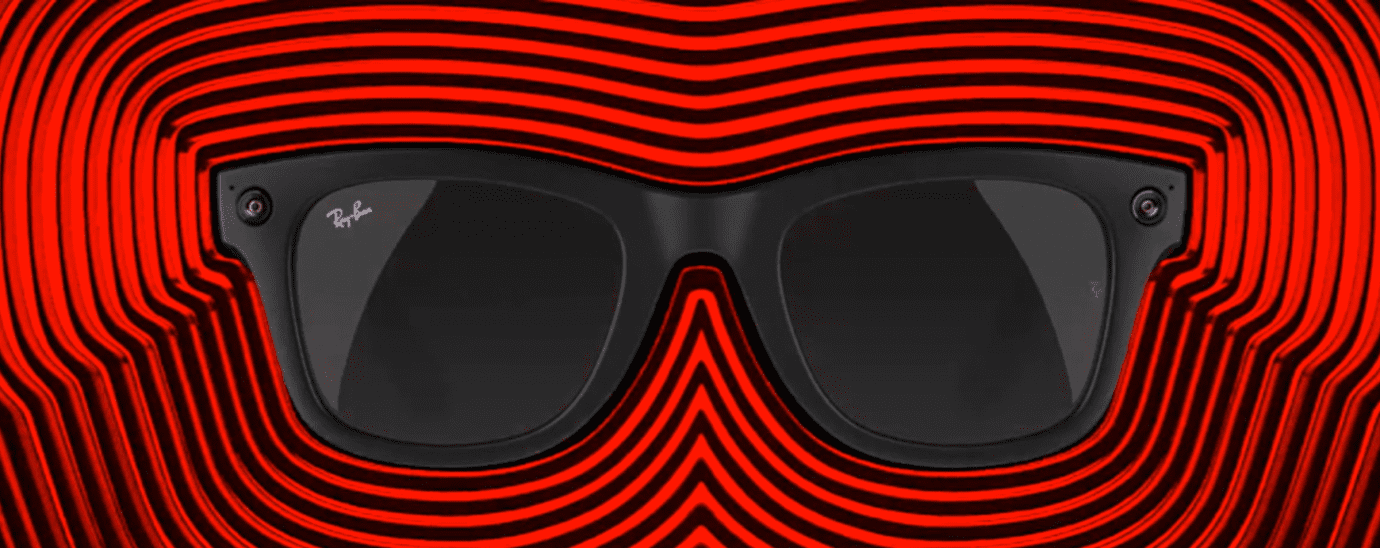Ray-Ban Stories: Are Facebook and Ray-Ban’s smart glasses a privacy nightmare?

Facebook and Ray-Ban’s smart glasses, Ray-Ban Stories, pose ethical and privacy-related concerns.
Facebook’s launch of ‘smart glasses’ with luxury company Ray-Ban is an exciting development in IoT for many. The glasses, which retail at US$299, join a few similar products in the market, but there are security concerns around this product’s data and its privacy.
What do they do?
A pair of cameras are built into the glasses to take photos and videos. They have a microphone and speaker to listen to podcasts, and a voice assistant so that they can be used hands-free. The frames can shoot five megapixel still images and record up to 30 seconds of video with a long or short tap of the device’s only button.
Andrew Bosworth, the Facebook executive who heads up Reality Labs, said the glasses were “designed to help people live in the moment and stay connected to the people they are with and the people they wish they were with. [Ray-Ban] has been nothing short of stellar in this partnership, and through their commitment to excellence, we were able to deliver on both style and substance in a way that will redefine the expectations of smart glasses.

These glasses are a step towards Zuckerberg’s desire to create AR glasses that blend the digital and physical worlds. He acknowledges that these glasses are a step in that direction. “There’s a bunch of work that still needs to be done there,” he said, “but while we’re working on that long-term vision, I think it’s also helpful to kind of work our way up and say ‘What’s possible and what can we unlock for people today?’ And that’s what this product ends up being.”
“Our mission is to help build tools that will help people feel connected any time, anywhere,” said Facebook’s Monisha Perkash. “We want to create a sense of social presence, the feeling that you’re right there with another person sharing the same space, regardless of physical distance.”
“We’re introducing an entirely new way for people to stay connected to the world around them and truly be present in life’s most important moments, and to look good while doing it.”
Familiar?
This product has been in the works since 2019 and bears a resemblance to Snapchat’s Spectacles. These glasses have been called “Stories” in reference to the story feature available on platforms such as Facebook and Instagram.
Privacy concerns
Facebook’s data protection has been under scrutiny for years, so it is perhaps unsurprising that these smart glasses have also raised concerns. “That’s why we baked privacy directly into the product design and functionality of the full experience, from the start,” Facebook says. “For example, we have hardware protections like a power switch to turn off the cameras and microphone, as well as [a] capture LED hardwired to the camera that shines a white light when you’re taking photos or videos to notify people nearby.”
Others have described the new product as Facebook “claiming the face as real estate for its own technology.” A key concern with Ray-Ban Stories is that one may not always know who is wearing them or recording. By leveraging Ray-Ban’s iconic design, they will blend in with other sunglasses seamlessly, making them trickier to identify, and if desired, avoided. There is a light that indicates when recording is taking place and a quiet shutter sound for images. However, individuals have no way of telling from a further distance if they are being recorded. This raises further concerns regarding data. Eyes can intake an obscene amount of information each day. If this is recorded and accessed by the wrong parties, it places that individual and all others recorded in a vulnerable position.
READ MORE:
- Matterport and Facebook AI Research to release the world’s largest dataset of 3D spaces
- The Lithuanian unicorn challenging the likes of Depop and Facebook Marketplace
- Australia makes Google and Facebook pay for news
- Google, Facebook hit Clearview AI with lawsuit over facial recognition app
Though this product progresses us toward Zuckerberg’s ‘metaverse,’ the data that Facebook will be able to collect is far more intimate than that provided by smartphones or smartwatches and would be worth a lot to the right buyer. In addition, it is unclear which privacy policies will apply to the glasses and how consent will function with them. Additional surveillance is also another cause for concern that feeds into this. Facebook has its five “responsibility” rules for those who purchase the glasses, but these rules will remain as no more than guidelines unless there is a way to enforce them. While this is a fun product, it would appear that Facebook and Ray-Ban still have many security details to work out before considering AR glasses that blend the digital and physical worlds.
For more news from Top Business Tech, don’t forget to subscribe to our daily bulletin!